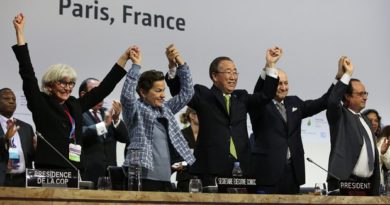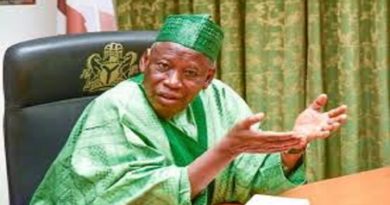Paris Agreement Implementation Committee prepares for second virtual meeting
What does the proper and effective functioning of a committee on compliance involve? Similar to a puzzle, many different parts of its rules of procedure need to work together in unison. This was addressed by the Paris Agreement Implementation and Compliance Committee (PAICC) at the recent informal virtual meeting on its functioning.
Established under Article 15, paragraph 2 of the Paris Agreement, the PAICC will function in a manner that is transparent, facilitative, non-adversarial and non-punitive and paying particular attention to the respective national capabilities and circumstances of Parties. The PAICC’s work will be guided by the provisions of the Paris Agreement.
Following its ground-breaking first virtual formal meeting in June this year, in September 2020, the PAICC carried out important inter-meeting work in preparation of their upcoming second formal meeting (scheduled in October 2020). The informal discussion was focused on how the PAICC will function by addressing substantive aspects of its draft Rules of Procedure.
The draft Rules of Procedure under discussion aim to address any matters necessary for the proper and effective functioning of the PAICC. Once completed, the Rules of Procedure will address any matters necessary for the proper and effective functioning of the PAICC, including the role of the PAICC Co-Chairs, conflict of interest, timelines for the PAICC’s work, as well as reasoning in decisions of the PAICC.
Due to the continuing COVID-19 pandemic and consequent constraints on face-to-face interactions, the PAICC improvised to maximize interaction by discussing real-world situations. The exercise was very useful as it allowed the PAICC to:
deepen its understanding of the matters it needs to agree on to recommend a draft Rules of Procedure to the supreme governing body for the Paris Agreement for its consideration and adoption and anticipate, in particular, cases where implementation of or compliance with the provisions of the Paris Agreement by Parties may be challenging.
First discussions at the meeting zoomed in on the guiding principles of the PAICC and how facilitation and compliance cases could be initiated. According to the Modalities and Procedures, this could happen in three different ways: by a Party, by the PAICC or by a Party and the PAICC together.
Mr. Haseeb Gohar, Co-Chair of PAICC, said at the end of the first day:”While we focused on these three elements, it is clear from these discussions how important it is to recognize the interlinkages between various other elements in the Modalities and Procedures of the PAICC. It was a useful and rich discussion,” he added.
Building on these discussions, the PAICC next took a deep dive into the complexities of its future functioning with the aid of two possible scenarios where Parties might experience challenges in implementation of or compliance with the provisions of the Paris Agreement. At the closing of the session, Ms. Christina Voigt, Co-Chair of the PAICC, said:”The exercise of examining such situations is very technical in nature and guided our thinking, as a committee, on how the PAICC would work in practice. Some of the substantive elements of the PAICC’s draft Rules of Procedure will serve as informal inputs to the second meeting.”
The emerging team spirit of the PAICC, which has not yet met in-person since commencing its work in 2020, was the spotlight of the meeting. While building relationships to make progress on the mandated work of the PAICC is markedly more challenging in a virtual format than in-person, this format with real-world situations nevertheless facilitated an open and inclusive environment for discussion in the PAICC, allowing it to be a step closer to completing this important task.
Work on the draft Rules of Procedure is based on a 2018 mandate. The draft will next year be recommended for consideration and adoption to the Paris Agreement’s top decision-making body, the CMA, which oversees the implementation of the Paris Agreement and takes decisions to promote its effective implementation.




